Camila Falquez Explores Expression and Decolonization at The Armory Show
Image Courtesy of Hannah Traore Gallery, Cultural Counsel, and Camila Falquez
For Camila Falquez, the artistic process is holistic, intensive, and cathartic. The New York City-based photographer, who is of Colombian heritage, born in Mexico City, and raised in Spain, presented an installation of photographs at the 2024 Armory Show presented by the Hannah Traore Gallery. Here, she compiled 13 unreleased photos from four different series shot in Colombia, Brazil, and Falquez’s New York City studio. In addition to her in-depth process, Falquez achieved this project by managing the set design, creative direction, and styling the photoshoots when photographing her subjects.
Falquez puts her own twist on photography to make it distinct. At The Armory Show, she integrated textiles with photography — partially wrapping the floating frames in silk. In Western painting, artists used draped fabric to detail their works. Falquez continued that tradition by intersecting textiles and photography with adornment, identity, and historical narratives. She intentionally incorporated draped, vibrant-colored fabrics to allow her subjects to explore the journeys of growing, blooming, and becoming oneself and how that transforms into existing, presenting oneself to others, and transcending representation.
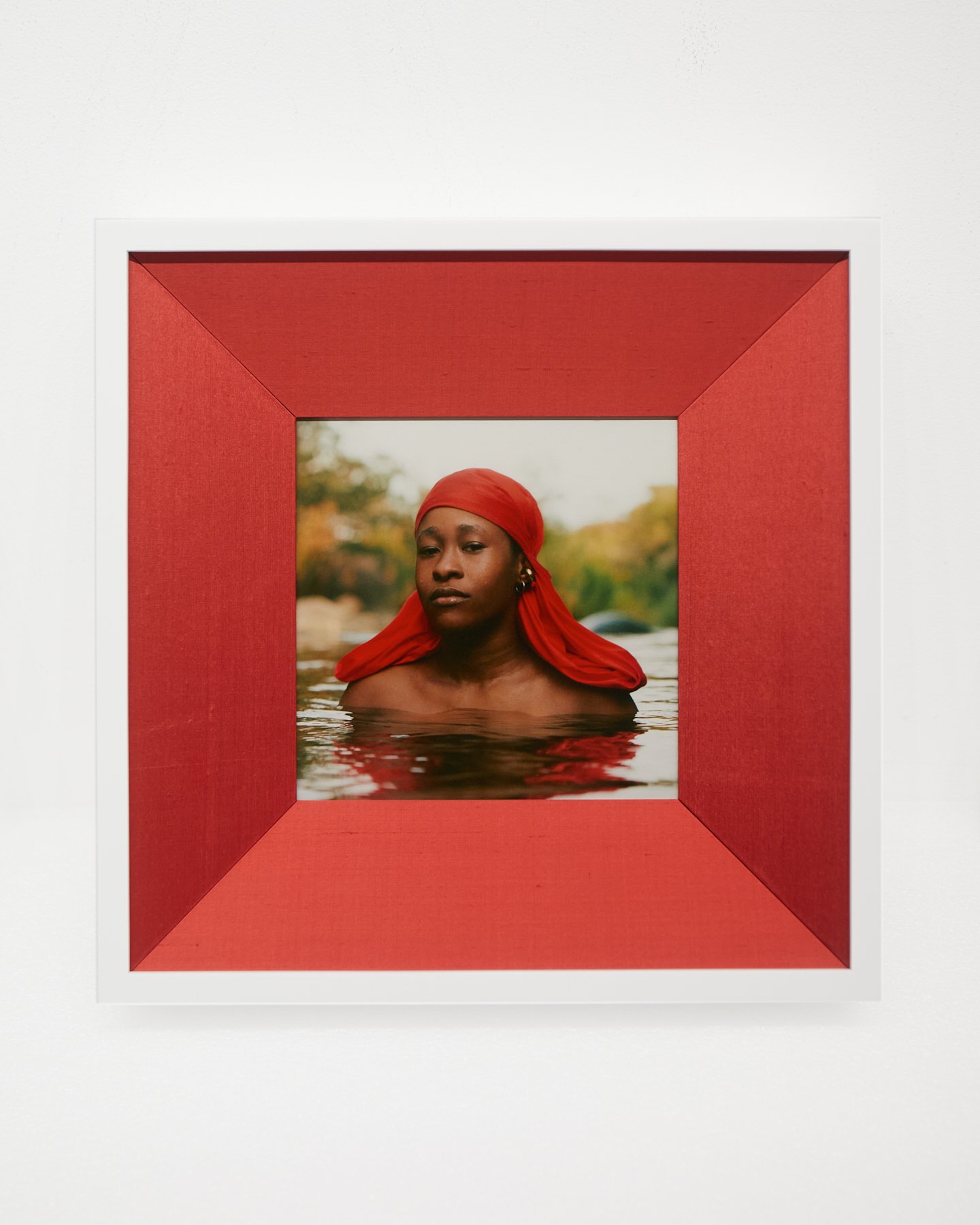
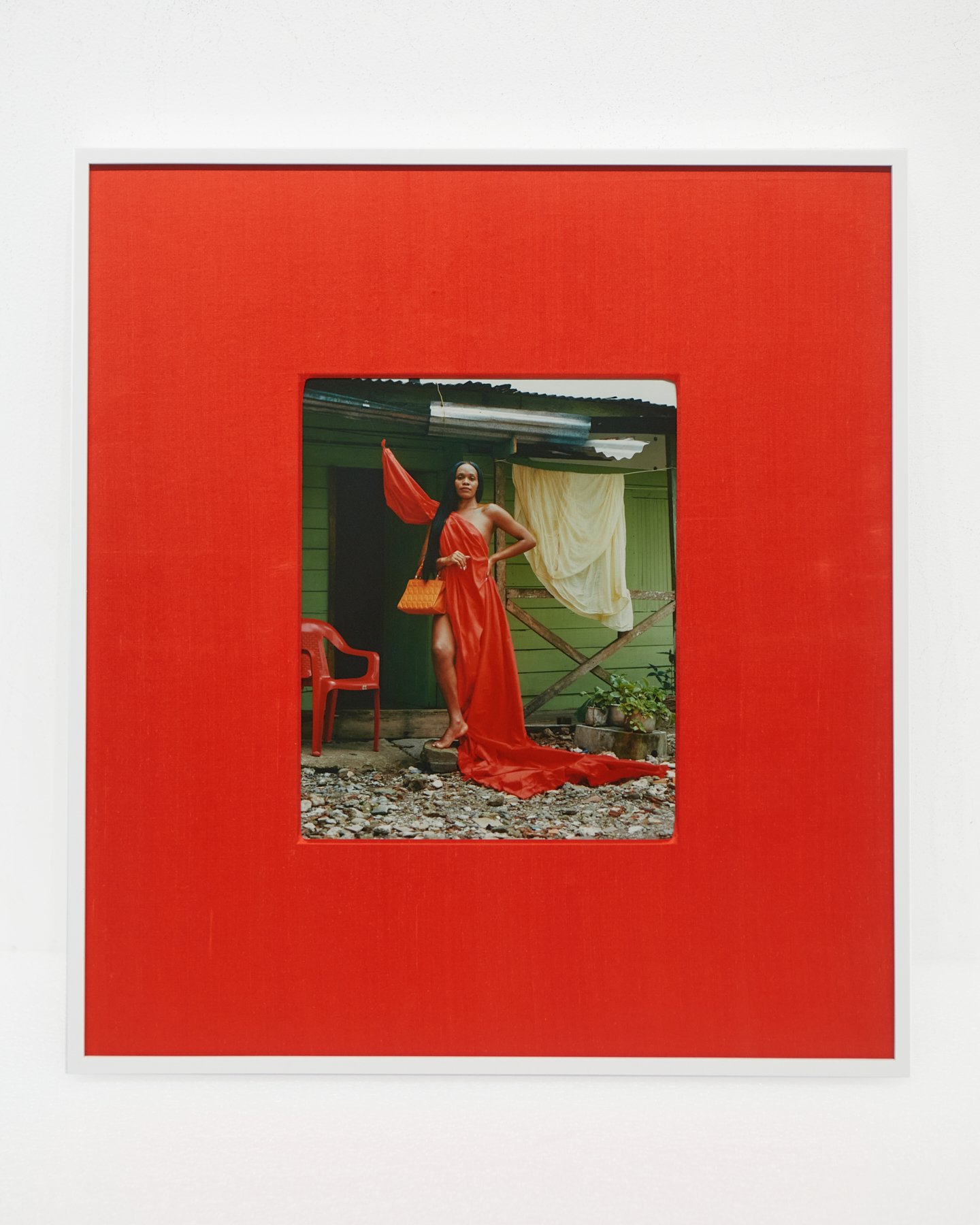
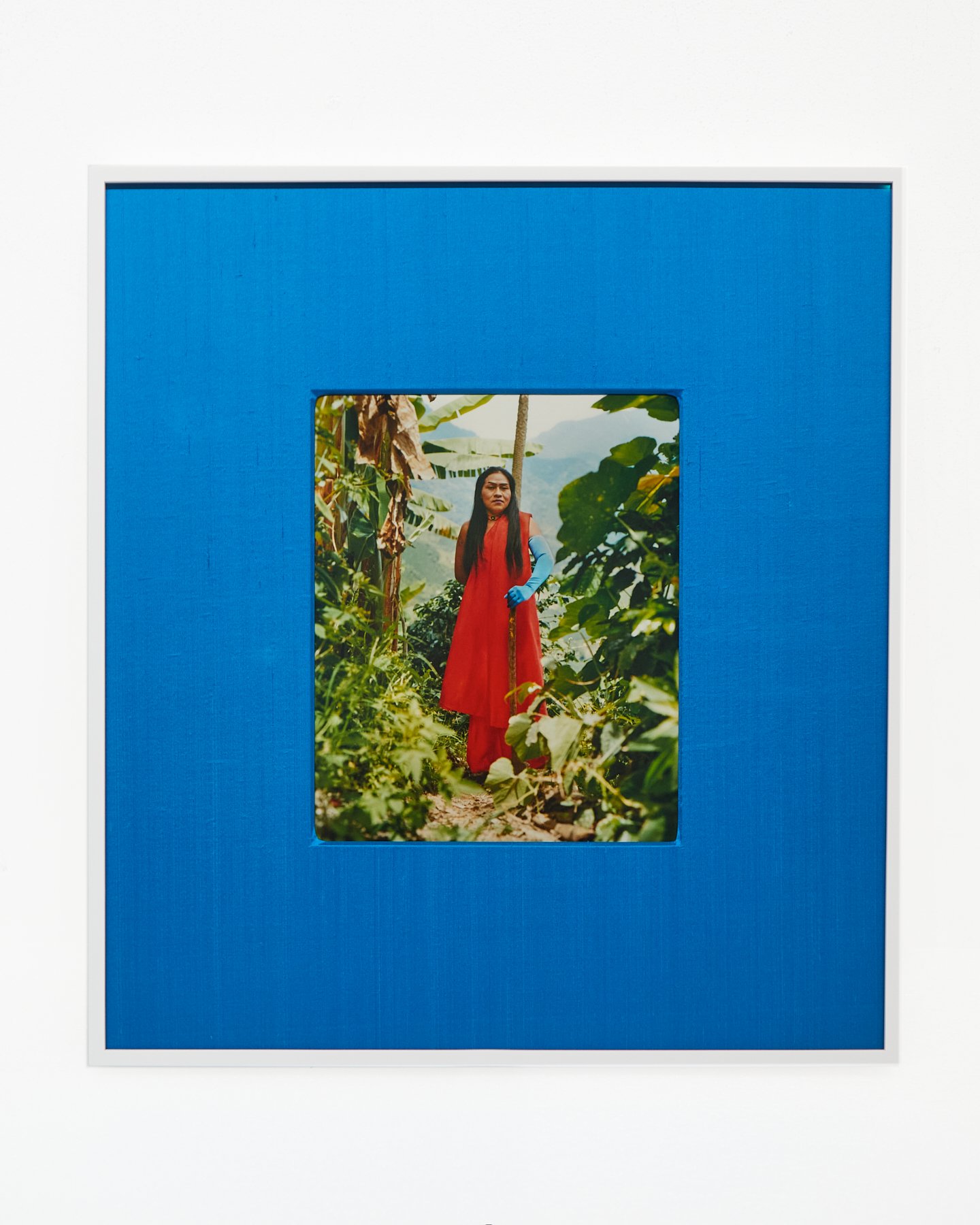
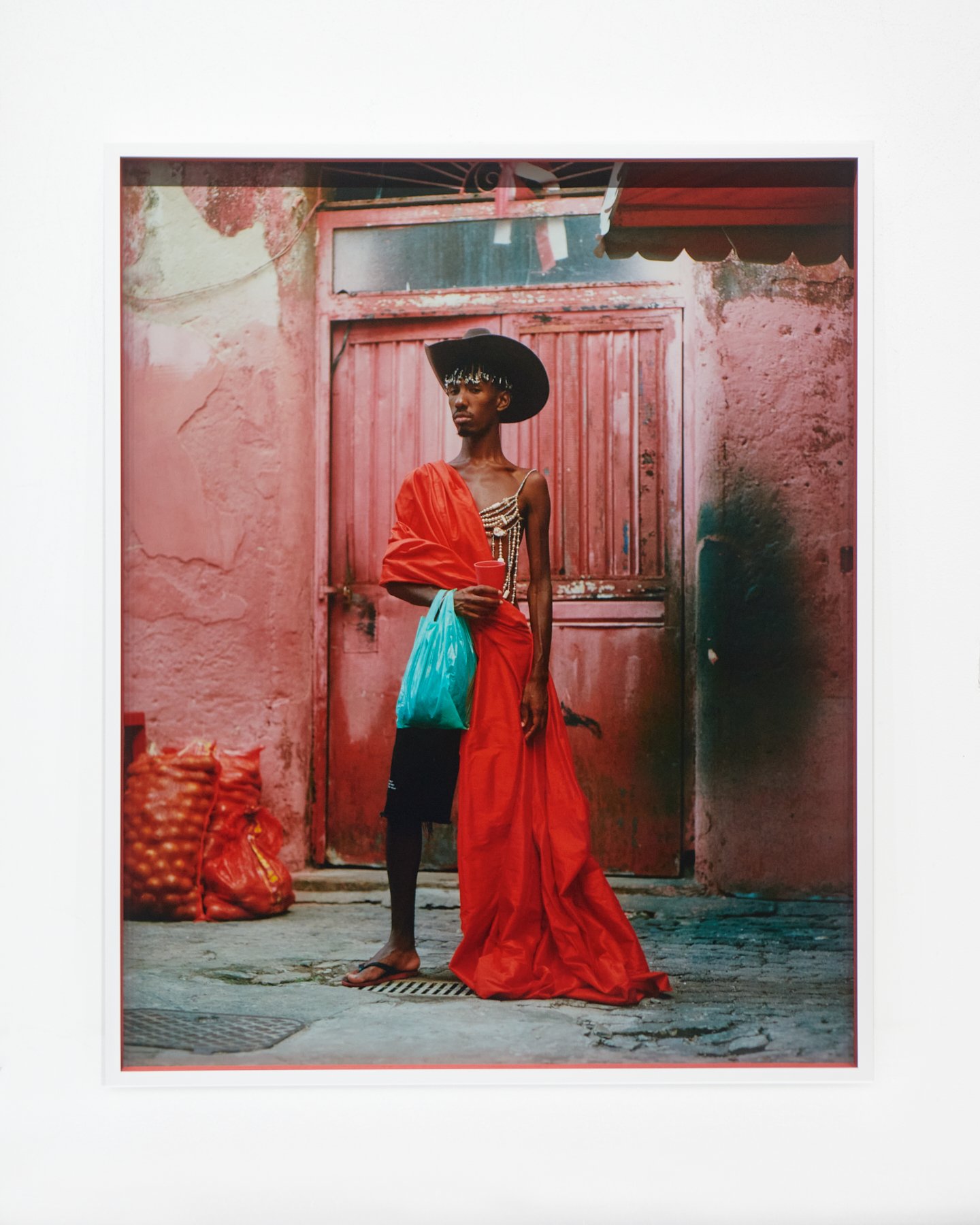
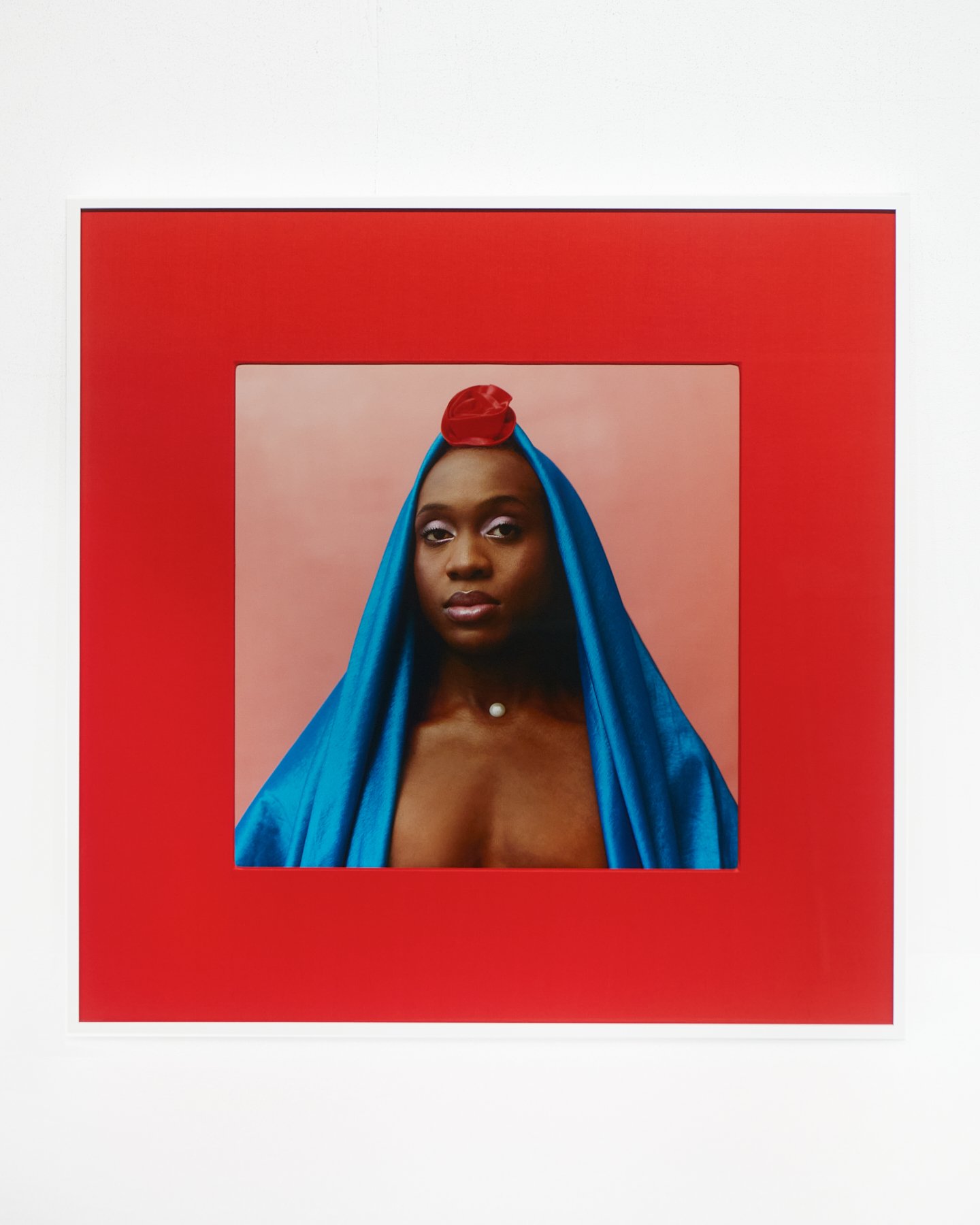
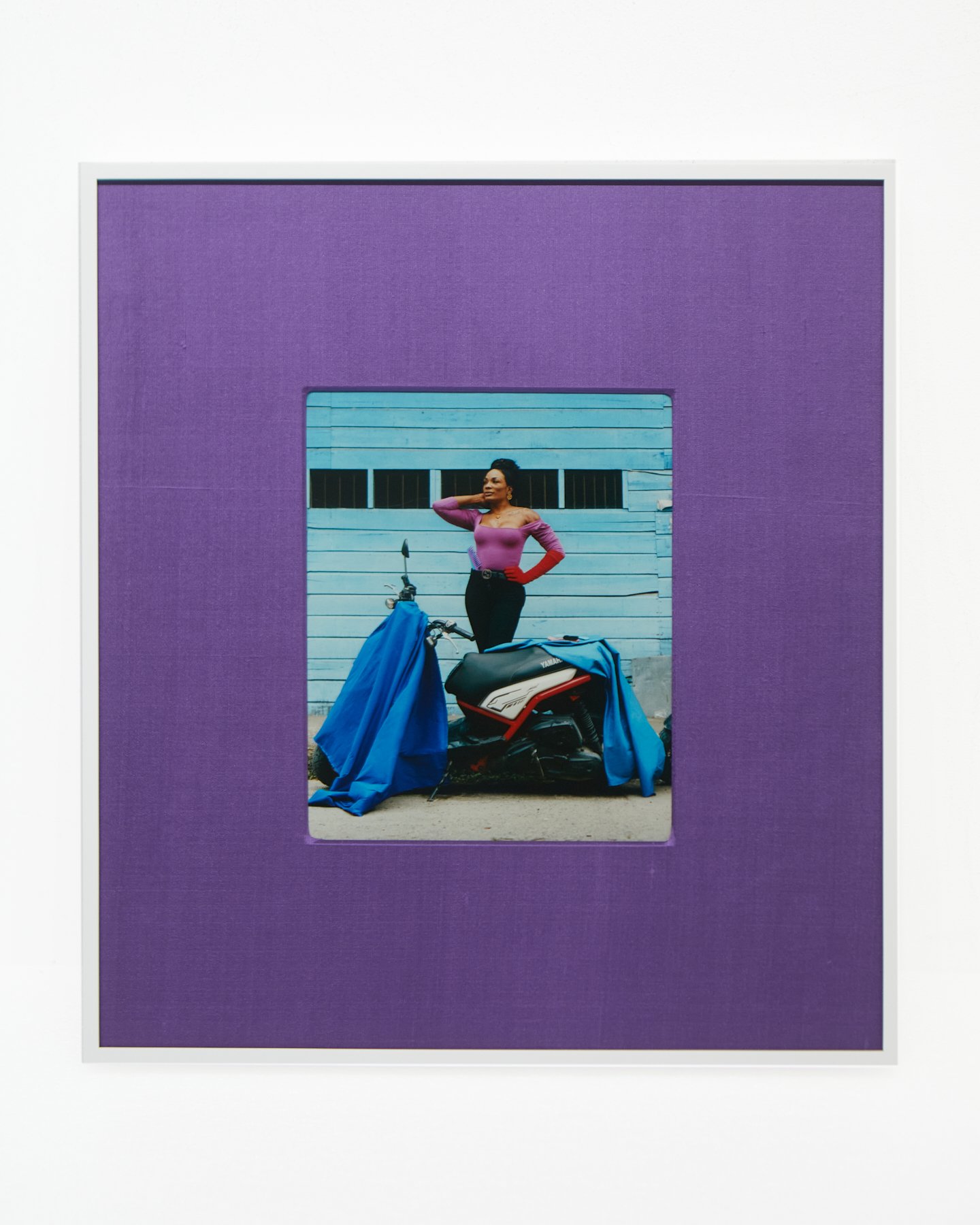
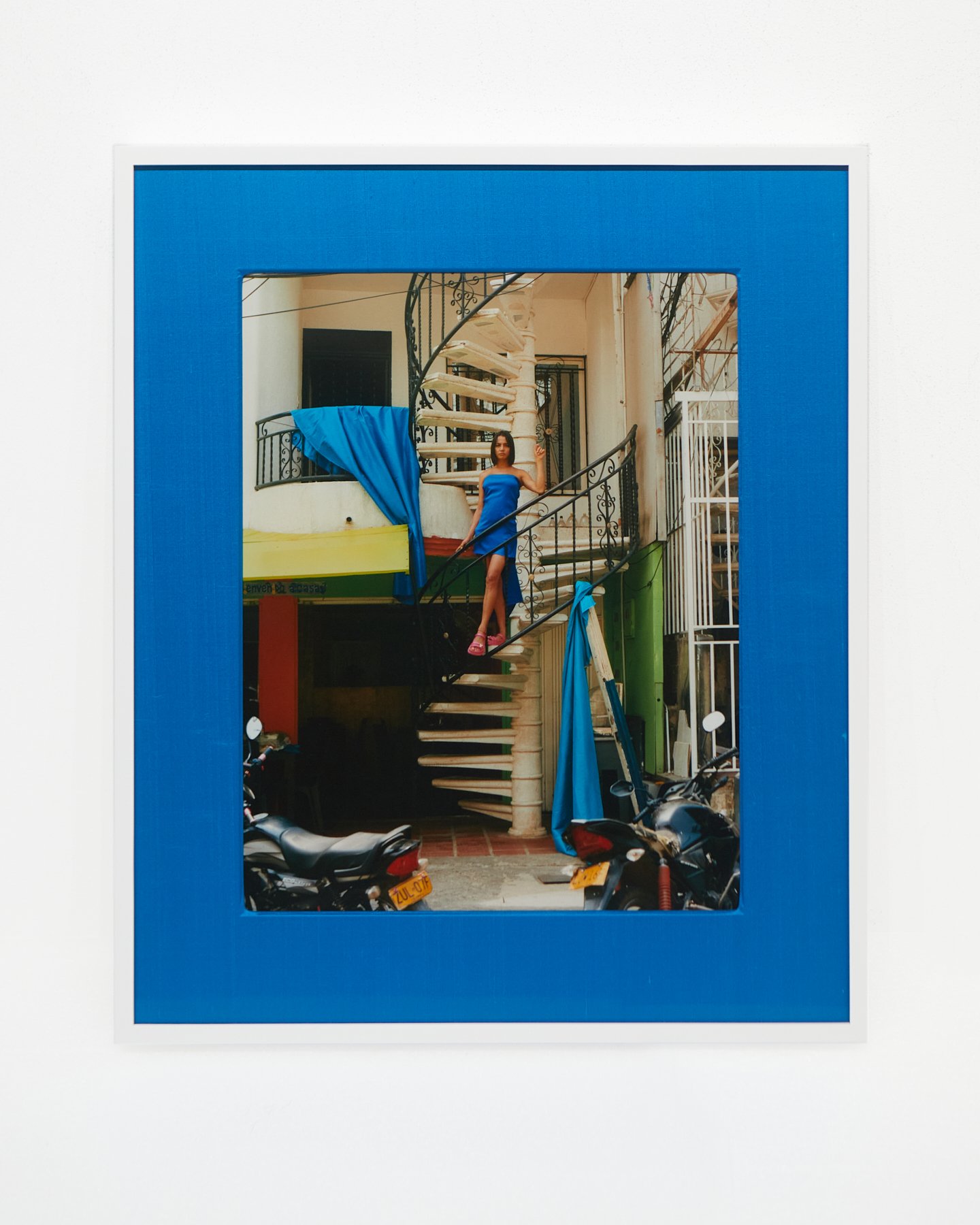
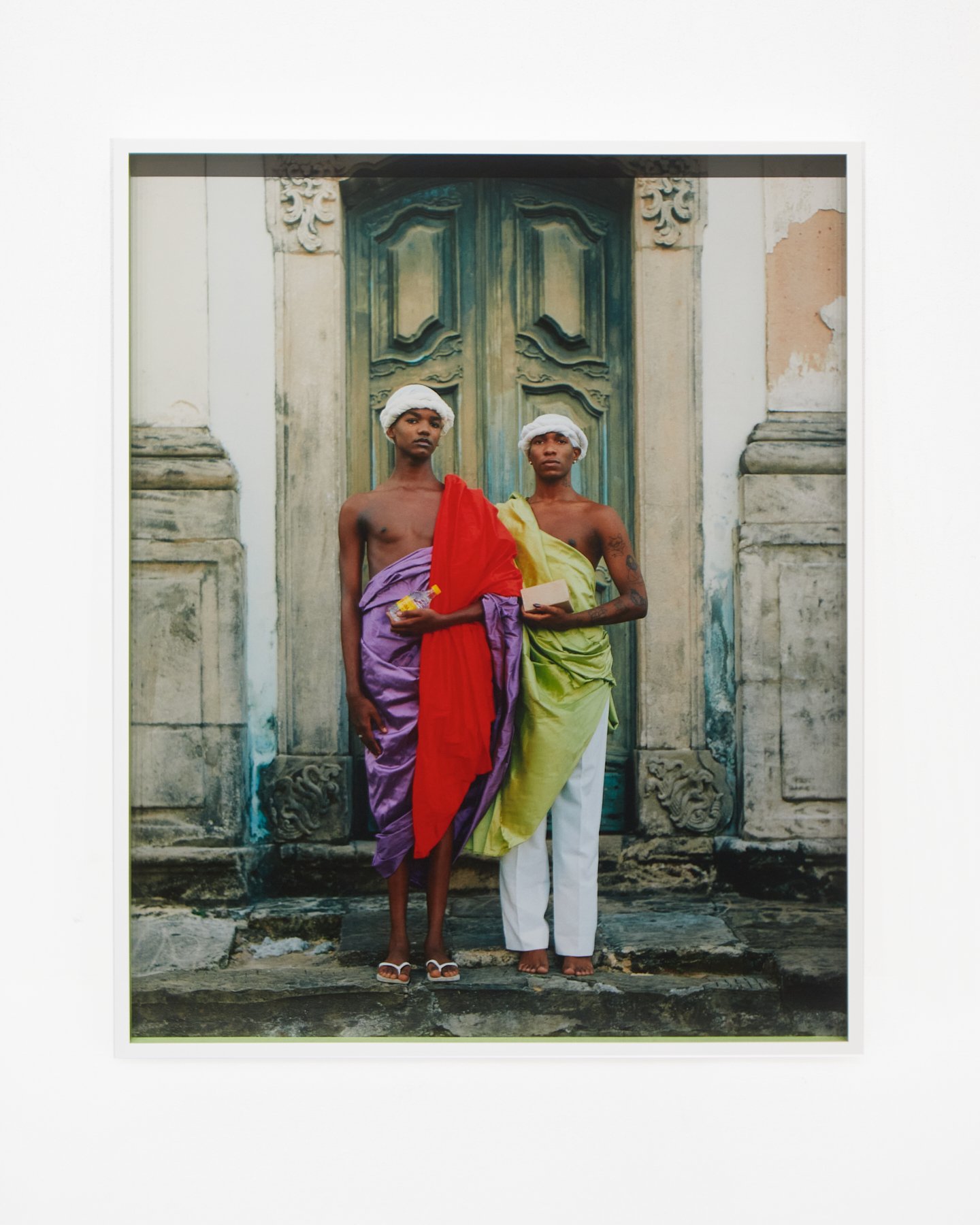
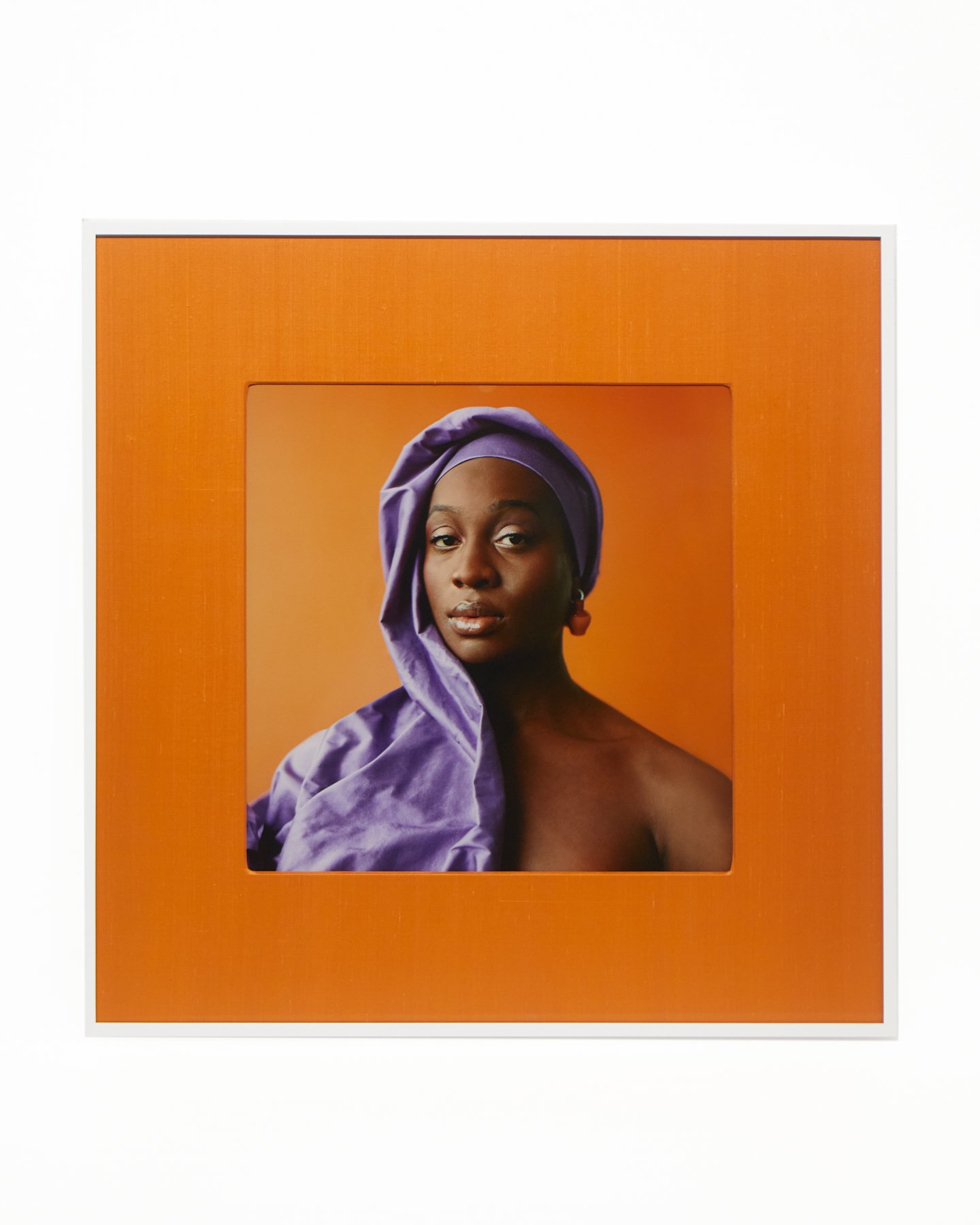
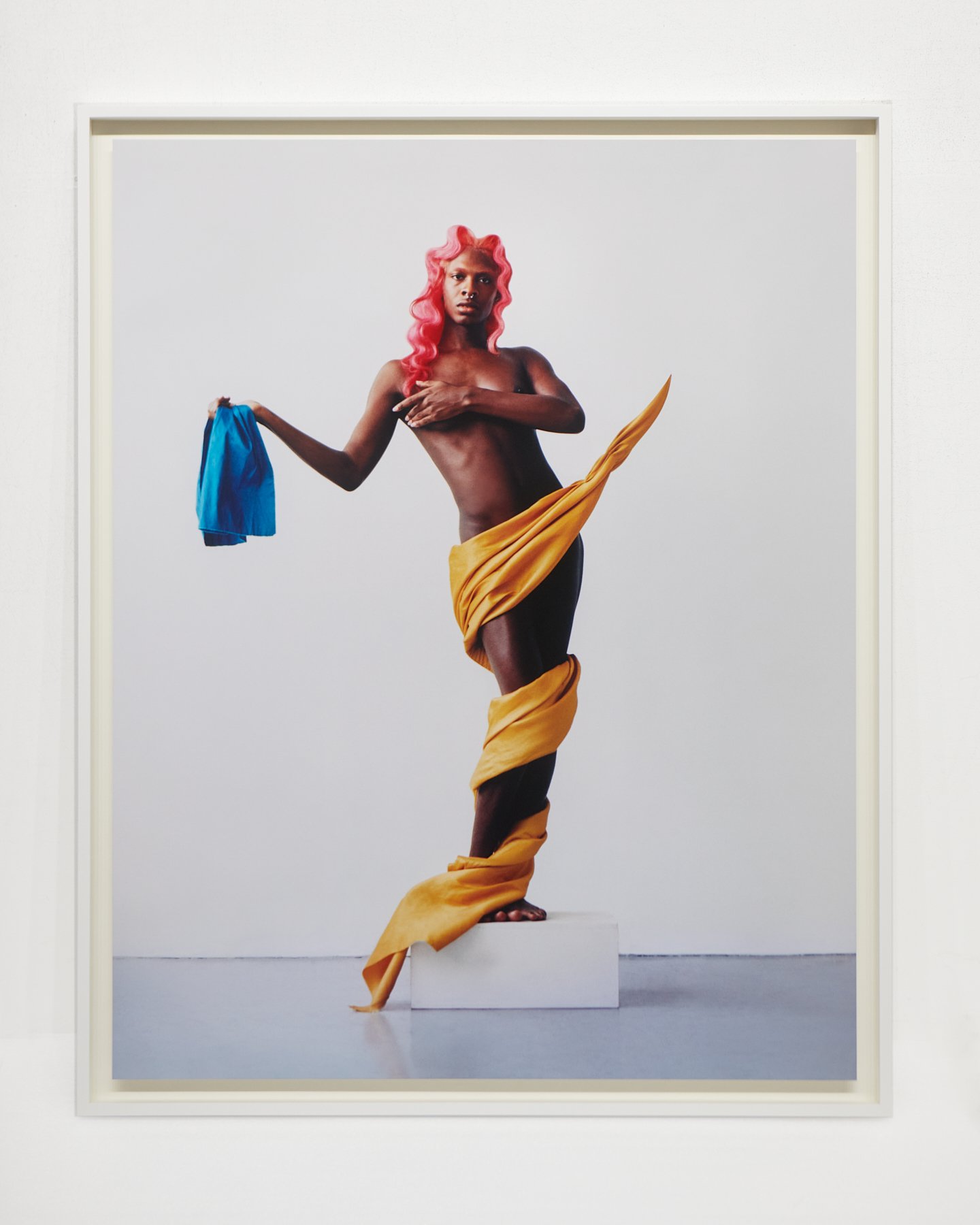
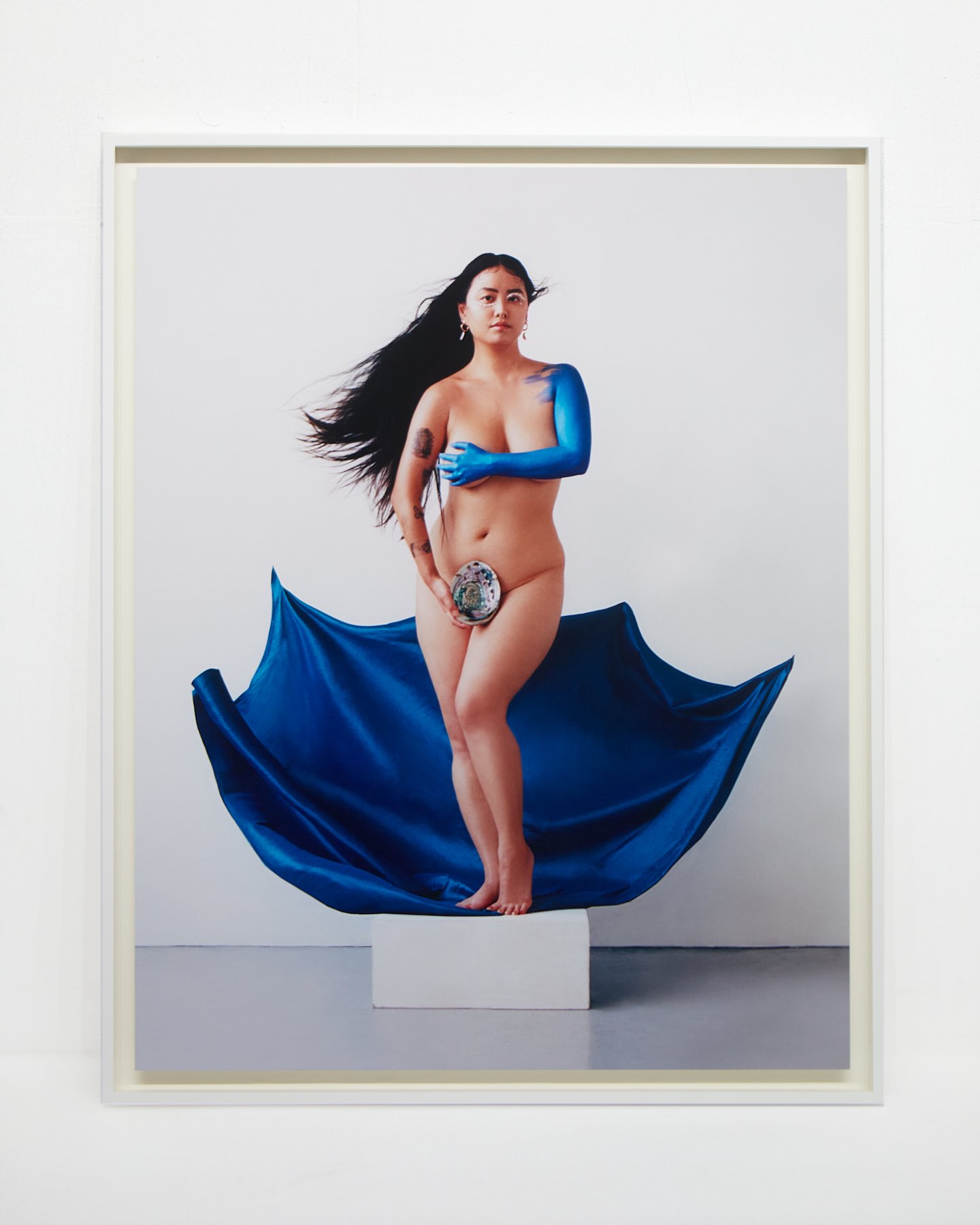
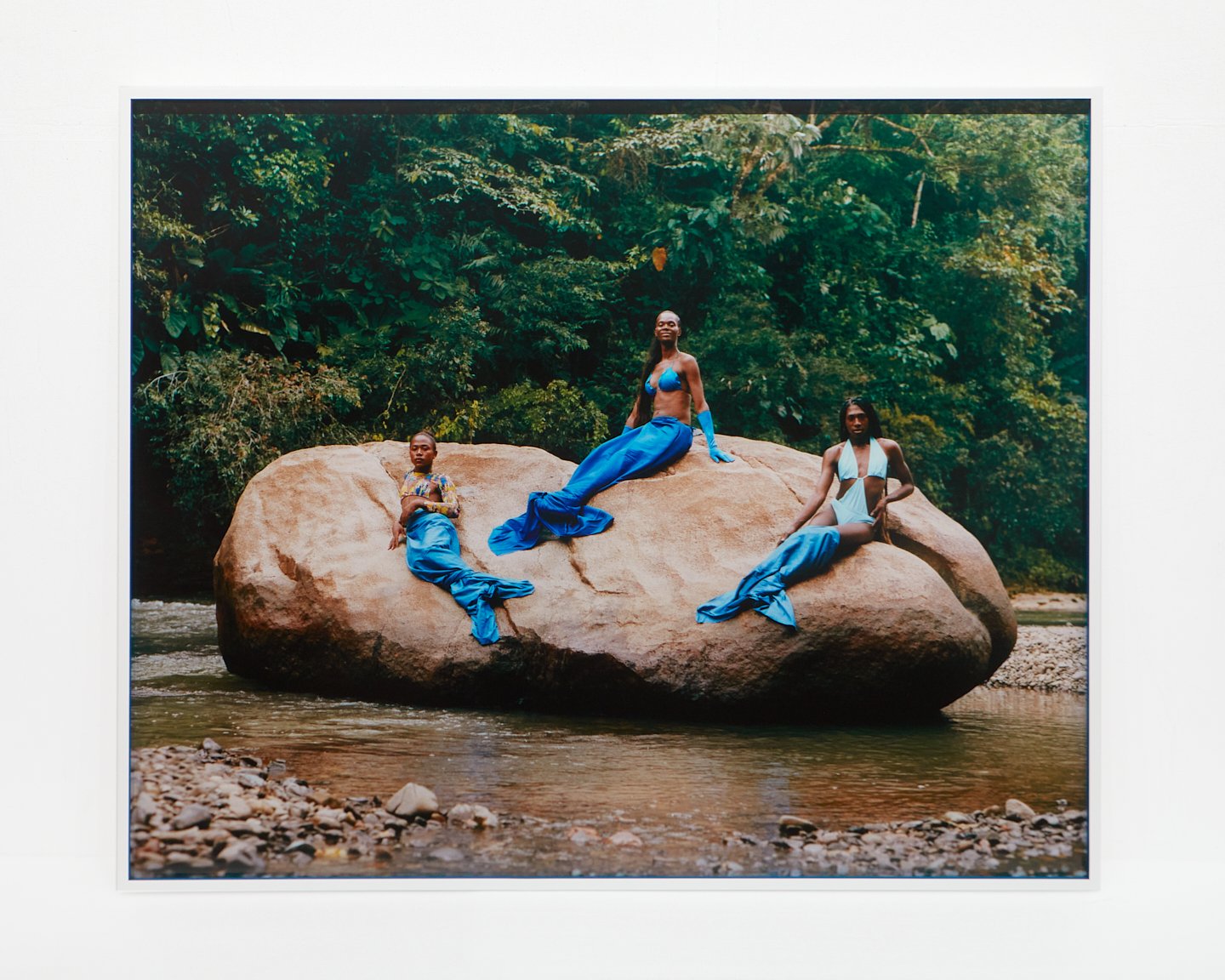
Image Courtesy of Hannah Traore Gallery, Cultural Counsel, and Camila Falquez
Decolonization plays a significant role in Falquez’s diverse subjects’ vitality, physical presence, and resistance. Each portrait represents an alternative history of Renaissance and Baroque portraiture to reinvent power and beauty in historical art. The Armory Show featured four of Falquez’s projects: Compañerx (2023–2024), Being (2018–ongoing), Arewa (2021–ongoing), and The Orishas (2023–ongoing). The works in this presentation are made possible by producer Nandi George, makeup artists Kaiya Carlin and Kento Utsubo, and hairstylists Evanie Fausto and Chika Nishiyama.
Compañerx documents photography, protest art, and video of Colombia’s first bill to protect trans and non-binary people in collaboration with Plataforma Ley Integral Tran, writer Cesar Vallejo, and stylist Lorena Maza. Being is a depiction of a visual manifesto to redefine and reclaim ideals, perceptions of power, and beauty to highlight stories of survival and liberation that often go overlooked due to colonial narratives and ideologies. Arewa displays Falquez’s close friendship with New York City trans performer and activist Arewa Basit through portraits. The Orishas is a continuous exploration that connects gender identity to Latin American religious iconography within the African Diaspora. It spans Brazil, Cuba, and Puerto Rico to delve into deities and religious figures in the Caribbean and Latin America and how they can be expressed and liberated from a queer perspective.

